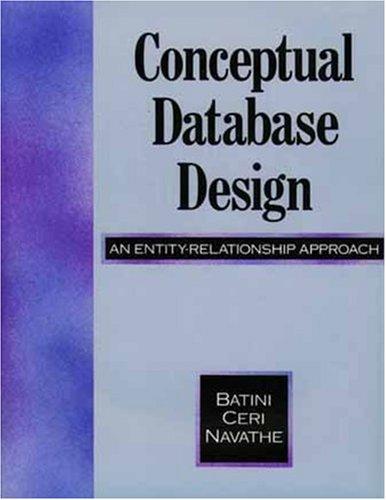Question
**I will upvote as soon as possible!** Create the following additional methods in the ChangeJar class: public ChangeJar takeOut (double amount) Take out amount using
**I will upvote as soon as possible!**
Create the following additional methods in the ChangeJar class:
public ChangeJar takeOut (double amount) Take out amount using the available quarters, dimes, nickels and pennies. For example: 1.23 would be 4 quarters, 2 dimes, 3 pennies. Example 2. The ChangeJar holds 4 quarters, 3 dimes, 0 nickels, 3 pennies; now takeout(.80) which would be 2 quarters and 3 dimes.
Change Jar class:
public class ChangeJar { private int quarters; private int dimes; private int nickels; private int pennies;
public ChangeJar() { this.quarters = quarters; this.dimes = dimes; this.nickels = nickels; this.pennies = pennies; }
/** * @param quarters * @param dimes * @param nickels * @param pennies */ public ChangeJar(String amount) { try { double amt = Double.parseDouble(amount); int cents = (int) (amt * 100);
this.quarters = cents / 25; cents %= 25; this.dimes = cents / 10; cents %= 25; this.nickels = cents / 5; cents %= 5; this.pennies = cents; } catch (Exception e) { throw new IllegalArgumentException("** Invalid.Must be a decimal value **"); }
}
/** * @return the quarters */ public int getQuarters() { return quarters; }
/** * @param quarters * the quarters to set */ public void setQuarters(int quarters) { this.quarters = quarters; }
/** * @return the dimes */ public int getDimes() { return dimes; }
/** * @param dimes * the dimes to set */ public void setDimes(int dimes) { this.dimes = dimes; }
/** * @return the nickels */ public int getNickels() { return nickels; }
/** * @param nickels * the nickels to set */ public void setNickels(int nickels) { this.nickels = nickels; }
/** * @return the pennies */ public int getPennies() { return pennies; }
/** * @param pennies * the pennies to set */ public void setPennies(int pennies) { this.pennies = pennies; }
public boolean equals(Object other) { ChangeJar cj = (ChangeJar) other; int othercents = cj.getQuarters() * 25 + cj.getDimes() + cj.getNickels() + cj.getPennies(); int cents = getQuarters() * 25 + getDimes() + getNickels() + getPennies(); if (othercents == cents) { return true; } else { return false; } }
public static boolean equals(ChangeJar jar1, ChangeJar jar2) { return (jar1.equals(jar2)); }
public int compareTo(ChangeJar other) { int cents = getQuarters() * 25 + getDimes() + getNickels() + getPennies(); int othercents = other.getQuarters() * 25 + other.getDimes() + other.getNickels() + other.getPennies();
if (cents > othercents) return 1; else if (cents < othercents) return -1; else return 0; }
public void subtract(int quarters, int dimes, int nickels, int pennies) { if (this.quarters >= quarters) this.quarters -= quarters; else this.quarters = 0;
if (this.dimes >= dimes) this.dimes -= dimes; else this.dimes = 0;
if (this.nickels >= nickels) this.nickels -= nickels; else this.nickels = 0;
if (this.pennies >= pennies) this.pennies -= pennies; else this.pennies = 0;
}
public void subtract(ChangeJar other) { if (this.quarters >= other.getQuarters()) this.quarters -= other.getQuarters(); else this.quarters = 0;
if (this.dimes >= other.getDimes()) this.dimes -= other.getDimes(); else this.dimes = 0;
if (this.nickels >= other.getNickels()) this.nickels -= other.getNickels(); else this.nickels = 0;
if (this.pennies >= other.getPennies()) this.pennies -= other.getPennies(); else this.pennies = 0;
}
public void dec() { if (this.pennies >= 0) this.pennies -= pennies; else { int cents = getQuarters() * 25 + getDimes() + getNickels() + getPennies();
this.quarters = cents / 25; cents %= 25; this.dimes = cents / 10; cents %= 25; this.nickels = cents / 5; cents %= 5; this.pennies = cents;
} }
public void add(int quarters, int dimes, int nickels, int pennies) {
this.quarters += quarters;
this.dimes += dimes;
this.nickels += nickels;
this.pennies += pennies;
}
public void add(ChangeJar other) {
this.quarters += other.getQuarters();
this.dimes += other.getDimes();
this.nickels += other.getNickels();
this.pennies += other.getPennies();
}
public void inc() { if (this.pennies < 98) this.pennies += 1; else { int cents = getQuarters() * 25 + getDimes() + getNickels() + getPennies();
cents++;
this.quarters = cents / 25; cents %= 25; this.dimes = cents / 10; cents %= 25; this.nickels = cents / 5; cents %= 5; this.pennies = cents;
} }
public String toString() { String str = null; if (this.pennies == 1) str = quarters + " quarters," + dimes + " dimes," + nickels + " nickels," + pennies + " penny"; else str = quarters + " quarters," + dimes + " dimes," + nickels + " nickels," + pennies + " pennies";
return str;
}
}
Step by Step Solution
There are 3 Steps involved in it
Step: 1

Get Instant Access to Expert-Tailored Solutions
See step-by-step solutions with expert insights and AI powered tools for academic success
Step: 2

Step: 3

Ace Your Homework with AI
Get the answers you need in no time with our AI-driven, step-by-step assistance
Get Started


